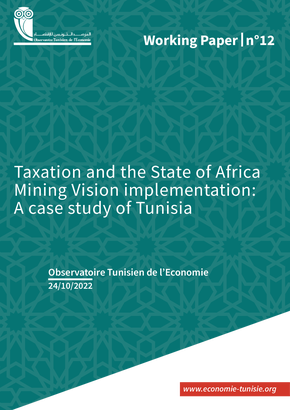Taxation and the state of Africa Mining Vision implementation: A case study of Tunisia

The governance of Tunisia’s oil, gas and mining sectors shifted from a taboo subject to the center of reform discussions since 2011. These debates arose in response to demands from marginalized regions and civil society organizations that accused the overthrown regime of corruption and mismanagement of natural resources. By 2015, protesters in Tunisia called for greater transparency in the oil industry through a campaign that started in the social media then expanded to the capital streets18.
“Where is the oil?” is the moto of the campaign that didn’t only ask for more transparency in the extractive sector, with demands for more equitable and optimal exploitation of mineral resources in order to underpin broad-based sustainable growth, socio-economic development and moreover a substantive address to Tunisia deep regional disparities. More recently, social movement in Tataouine have also recalled these concerns at a local level. Claims that exist in Tunisia around the extractive sector are actually echoed of situations known by many of African countries. Regarding this, in February 2009, the Heads of State and Governments of the African Union (AU) elaborated and adopted the African Mining1 Vision (AMV)2.
The AMV serves as the key framework at the continent level to “promote mineralresource-based development and structural transformation”. AMV has even been translated in an Action plan for helping countries to implement it according 8 clusters, including the Cluster1 : “Mining revenues and mineral rents management” and the Cluster5 : “Mineral sector governance”.Whereas some African countries officially adopted AMV and start to implement its Action Plan, Tunisia didn’t launch any specific process or measures for domesticating the Africa Mining Vision, but passed reforms on its own progressively since 2011.
The framework of the natural resources management and more specifically the extractive sector has obviously changed since the revolution of 2010. But to what extent has it changed? Are the changes that occurred in the extractive sector aligned with the AMV principles?
This working paper is assessing the institutional and legal framework evolution of the extractive sector in Tunisia in the light of AMV principles and action plan. Africa Mining Vision domestication in Tunisia remaining low, the existing gaps indicate ways for Tunisia to foster a transparent, equitable and optimal exploitation of mineral resources to underpin broad-based sustainable growth and socio-economic development
